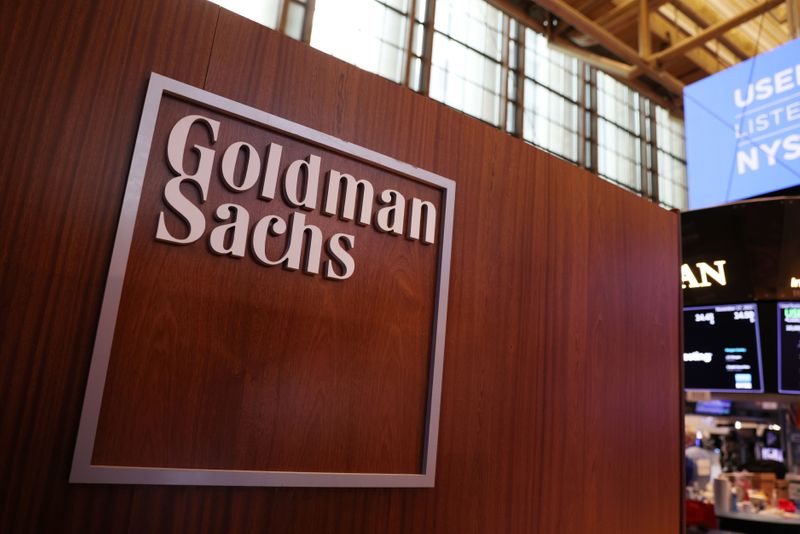UnitedHealth tests AI system to streamline medical claims processing - Bloomberg
Investing.com-- JP Morgan downgraded its rating on Goldman Sachs Group Inc (NYSE:GS), stating that the bank’s shares were now fairly valued and that its peers in Europe appeared more attractive at much lower valuations.
JPM downgraded Goldman Sachs to Neutral from Overweight and hiked its price target to $750.0 from $625.0.
The investment bank lauded Goldman Sachs’ strong market share improvement in recent years, especially in sales and trading. The bank also benefited from strength in its global banking and markets, and its wealth management sectors, while also limiting exposure to its laggard platform solutions business.
But JPM noted that in a “global context,” it continued to prefer European investment banks– chiefly Barclays PLC (LON:BARC) and Deutsche Bank (ETR:DBKGn)– at “significantly cheaper valuations.”
Still, JPM said it continued to prefer Goldman Sachs over Morgan Stanley (NYSE:MS) in U.S. markets, and reiterated its Neutral rating on the latter.
JPM noted that Goldman Sachs’ 2027 consensus revenue estimates appeared “challenging,” even after factoring in more growth in investment banking fees.
“Even in a Blue Sky scenario of peak IB revenues and higher buybacks, we see GS and MS trading at 12.3x and 13.5x 2027E P/E, respectively, i.e. not cheap,” JPM analysts wrote in a Monday note. By comparison, they see Barclays at a 6.4x P/E and Deutsche Bank at 8.4x.
But expected support from deregulation in the U.S., under President Donald Trump, still kept JPM Neutral on U.S. banks, rather than Underweight, the bank said.
JPM had hiked its EPS forecasts for Goldman Sachs last week, after the latter clocked strong third-quarter earnings.
Goldman Sachs shares are trading up nearly 33% so far in 2025, as the investment bank benefited from a boom in private and equity markets amid falling global interest rates and looser U.S. regulations under Trump.
Barclays and Deutsche Bank are trading up 35.6% and 72.6%, respectively, in 2025. The two benefited greatly from a boom in European markets, as investors cheered Brussels’ plans to unlock substantially more fiscal spending in the coming years.
